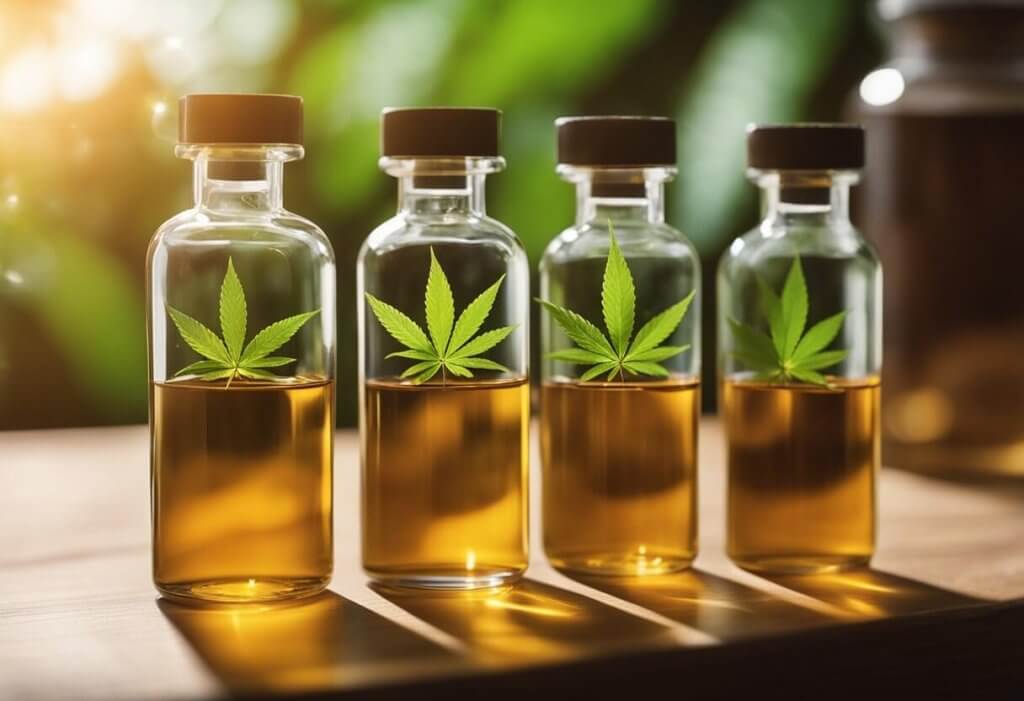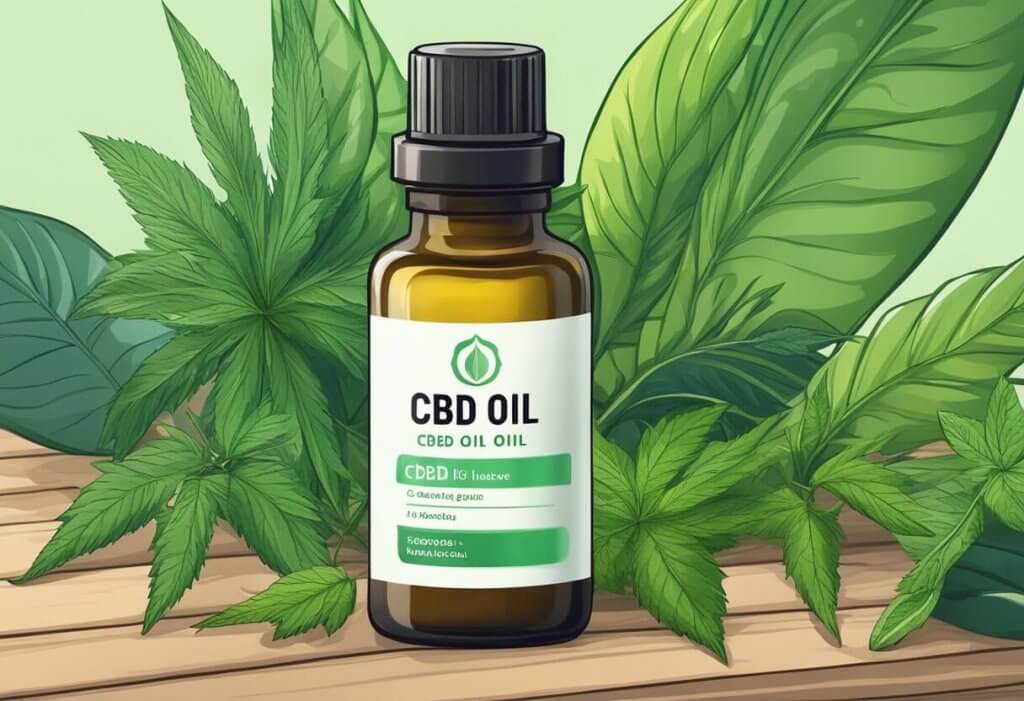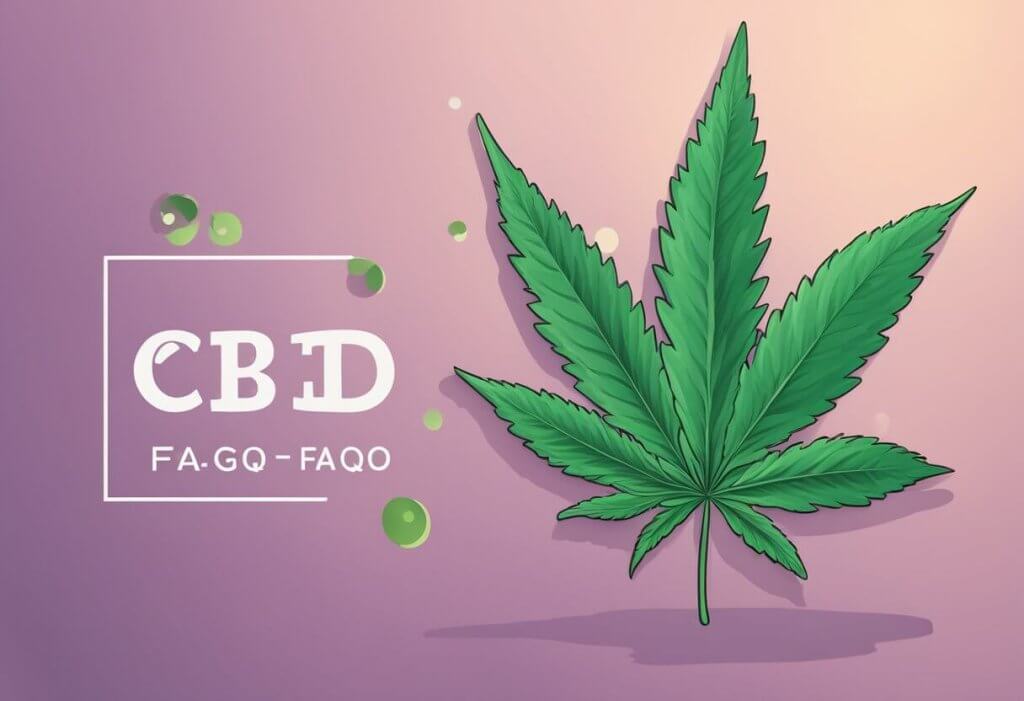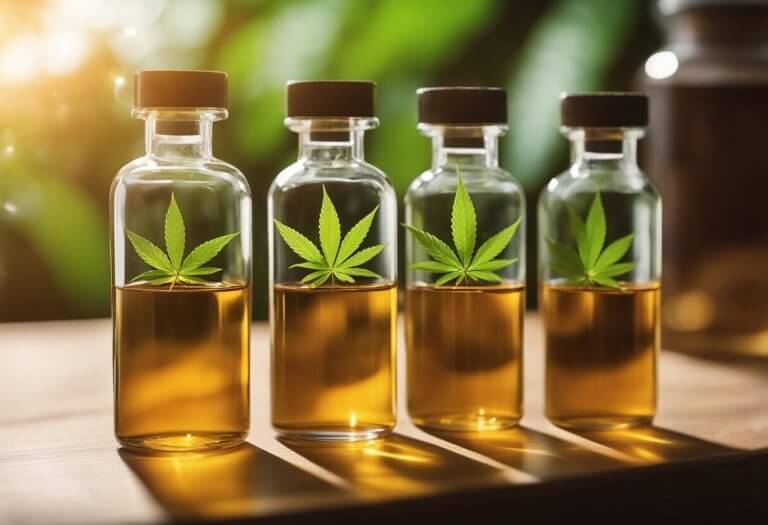Unraveling the Myth
Disclaimer: The anecdotal benefits of CBD mentioned on this website are based on preliminary research and individual user experiences. All information presented here is not meant to substitute for or replace information from health care practitioners. Please click here for our full disclaimer, including side effects, FTC position, etc.
Cannabidiol, commonly known as CBD, is a non-psychoactive compound found in cannabis and hemp plants. There’s a common misconception that because CBD is associated with cannabis, it must cause a ‘high.’ However, CBD alone does not produce the intoxicating effects that its cousin, THC, is known for.
Instead, it’s often lauded for its therapeutic benefits, such as reducing anxiety or managing pain. With the rise of its popularity and the 2018 Farm Bill legalizing the sale of most CBD products containing less than 0.3 percent THC in the United States, many people are turning to CBD for its potential health benefits without the high of conventional marijuana.

Understanding how CBD affects the body involves looking at the human endocannabinoid system, a complex network that maintains bodily homeostasis. Unlike THC, CBD doesn’t bind in a way that creates psychoactive effects, making it a legal, non-intoxicating option for individuals seeking relief from various symptoms.
Despite the clear dividing line between CBD and its psychoactive counterparts, it’s vital for consumers to purchase products from reputable sources to ensure they contain the legal amount of THC and are free from contaminants.
Key Takeaways
- CBD, derived from cannabis or hemp, does not cause a “high.”
- It interacts with the body’s endocannabinoid system for potential therapeutic effects.
- Legal CBD products must contain less than 0.3 percent THC.
Understanding the Effects of CBD

Cannabidiol, or CBD, is a non-intoxicating component of cannabis and hemp plants that has garnered significant attention for its potential health benefits without the high commonly associated with marijuana.
Cannabinoid Basics
Cannabinoids are a group of compounds found in cannabis. The most well-known cannabinoids are THC and CBD, which have different effects on the body. While THC is known for its psychoactive properties, CBD is valued for its therapeutic potential without causing a euphoric high.
Fact: According to the CDC, “CBD is not impairing, meaning it does not cause a “high.'” CBD is the non-psychoactive compound derived from the hemp plant.
https://www.cdc.gov/marijuana/featured-topics/CBD.html
Comparing THC and CBD
THC (tetrahydrocannabinol) is the principal psychoactive constituent of cannabis that causes the sensation of getting high. On the contrary, CBD does not exert the same effect on the body’s endocannabinoid system, and it does not bind to CB1 receptors in the brain like THC does, which is why CBD does not produce an intoxicating effect.
Table Breaking Down CBD vs THC Effects:
| Compound | Psychoactive? | Potential Therapeutic Uses |
|---|---|---|
| CBD | No | Pain, anxiety, insomnia, seizures |
| THC | Yes | Pain, nausea, appetite stimulation |
Navigating Misconceptions About CBD
Some people mistakenly believe that CBD can cause a high similar to THC. However, even high-quality CBD products contain less than 0.3% THC as mandated by the 2018 Farm Bill, making them non-psychoactive and legal in many parts of the United States.
CBD Experiences and What to Expect
CBD may induce a feeling of relaxation or a calmer state of mind. Over time, users often report a sense of well-being and decreased stress. These experiences can depend greatly on the individual, the quality of the product, and the dosage taken.
Promising Study: A 2022 double-blind study published in Nature found “cannabis with a relatively high CBD ratio may be less likely to have adverse effects than cannabis with a low CBD ratio.” This suggests CBD may counteract some of the psychoactive effects of THC.
https://www.nature.com/articles/s41386-022-01478-z
Quality Considerations
The purity and sourcing of CBD are critical to its effects. High-quality CBD should have transparent third-party testing for potency and contaminants. Low-quality products might not only be less effective but could also contain harmful substances.
CBD and the Body
CBD interacts with the body’s endocannabinoid system, which plays a role in regulating mood, memory, and pain. It is believed to help with conditions like anxiety, depression, and chronic pain by modulating these physiological processes.
Potential Health Benefits and Therapeutic Uses
CBD has been studied for its role in treating various health issues, ranging from chronic pain and arthritis to seizure disorders and inflammation. For those undergoing chemotherapy, CBD has been used to alleviate nausea and vomiting. Moreover, it’s being researched for its potential to contribute to managing epilepsy and relieving anxiety.
Frequently Asked Questions

In this section, we’ll cover some of the most common questions surrounding the effects of CBD, clearly distinguishing between CBD’s non-intoxicating properties and THC’s high-inducing characteristics.
What kind of sensation can you expect from taking CBD?
When taking CBD, individuals often report a feeling of relaxation or calmness. It does not produce a “high” but may alleviate stress, which can result in a subtle sense of relief and well-being.
Is there any psychoactive effect when you use CBD products?
CBD products typically do not possess psychoactive effects. Unlike THC, CBD does not interact strongly with the CB1 receptors in the brain, which are responsible for the psychoactive effects of cannabis.
How would you describe the feeling of using CBD?
Using CBD is associated with a sensation of relaxation and can potentially help to reduce anxiety and improve mood. People often use it to support their mental health and find that it promotes a tranquil state without intoxication.
Can using CBD impact your mental clarity?
CBD is not known to impair mental clarity. In fact, some users take CBD to help with focus and concentration. However, everyone’s reaction may vary, and some may experience different degrees of subtleness in its calming effects.
What’s the difference between CBD and THC in terms of getting high?
CBD and THC are both cannabinoids found in cannabis plants, but they have different effects. THC binds to CB1 receptors in the brain, causing psychoactive effects, or a “high.” CBD, on the other hand, does not induce a high and may actually mitigate some of the psychoactive effects of THC.
Will I experience any alteration in perception after smoking CBD?
Smoking CBD should not alter perception in the way THC does. Some may feel mild relaxation, but it does not result in the noteworthy sensory changes associated with THC. Additionally, it does not impair cognition or cause a high.
Success Story: “I struggled with anxiety for years before trying CBD. It has made such a positive impact – I feel calmer and can finally get a good night’s sleep without any mind-altering high. CBD has been life-changing.”
– Jessica M., Chicago
